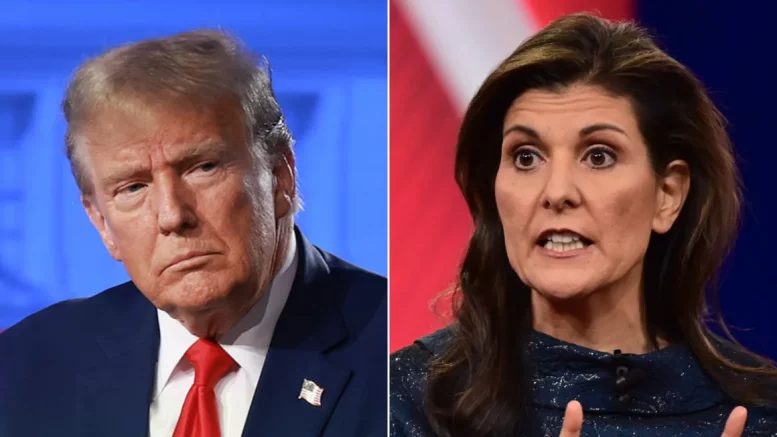In the aftermath of a court ruling that has prompted some Alabama fertility clinics to limit their IVF treatments, the complexities of navigating a post-Roe v. Wade landscape are starkly evident, especially among top Republicans. Last week’s decision by the state Supreme Court, which declared embryos as children and potentially liable for wrongful death, has left candidates like presidential contender Nikki Haley scrambling to articulate coherent responses. The ruling underscores the delicate balancing act Republicans face between appeasing social conservatives within their party and appealing to more moderate voters crucial in a general election.
Ironically, the 2022 decision by the US Supreme Court to end the nationwide federal right to abortion, hailed as a major victory for the conservative movement, has since presented a significant political opportunity for Democrats and abortion rights advocates. Led by President Joe Biden, Democrats wasted no time in framing the Alabama ruling as a consequence of the broader conservative judicial shift post-Roe, highlighting the increasingly radical nature of some judicial decisions emboldened by the overturning of the landmark case.
The Alabama ruling, accompanied by a concurring opinion invoking religious rhetoric, has raised concerns about its potential ripple effect in other conservative states, further fragmenting the already patchwork landscape of reproductive rights across the country. This latest legal battle, revolving around deeply personal healthcare decisions and differing beliefs about the onset of life, underscores the inherently political nature of the issue, fueled by years of public campaigns by anti-abortion activists.
However, amidst these fierce partisan clashes, the nation’s ultra-polarized climate complicates the possibility of sober debates on fundamental questions surrounding human existence. While some view embryos as unborn babies deserving of full rights, others see them as a collection of cells with the potential for life but not yet actualized. The Alabama ruling, while not outlawing IVF, has already impacted individuals undergoing the emotionally taxing process, with some fertility clinics suspending parts of their IVF programs due to legal uncertainties, leaving patients like Gabrielle Goidel facing disruptions in their pursuit of starting families.
Democrats, buoyed by electoral successes and aiming to capitalize on the issue of reproductive rights, believe that championing these rights and painting the GOP as a threat to them could help sway critical voters and rebuild Biden’s electoral coalition. The conspicuous silence of figures like Donald Trump and the nuanced responses from Republicans like Nikki Haley highlight the political tightrope they must walk in a transformed abortion landscape.
Despite Haley’s attempts to navigate the issue by affirming her personal belief in embryos as unborn babies while also advocating for continued access to fertility treatments, the Alabama ruling presents a conundrum for GOP candidates like her and Senator Tim Scott. Trump’s evasion of the issue and his conflicting positions further illustrate the challenges faced by Republicans in reconciling their conservative base with broader electoral considerations.
Meanwhile, Biden’s campaign wasted no time in seizing on Republican discomfort over the Alabama ruling, framing it as a direct consequence of the broader conservative agenda on reproductive rights. Democrats see this issue as a potential rallying point for energizing voters, capitalizing on the backlash against perceived attacks on reproductive freedom.
As the political landscape continues to evolve, the reactions of Republicans and Democrats to the Alabama ruling underscore the significance of reproductive rights as a potent electoral issue, with potential implications for the upcoming elections.

